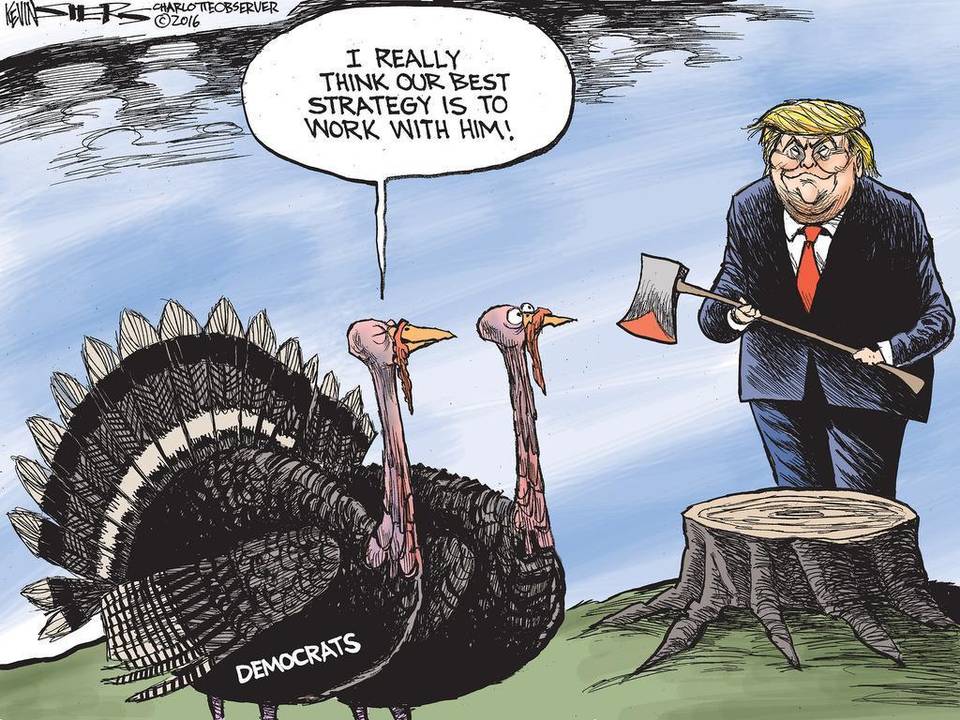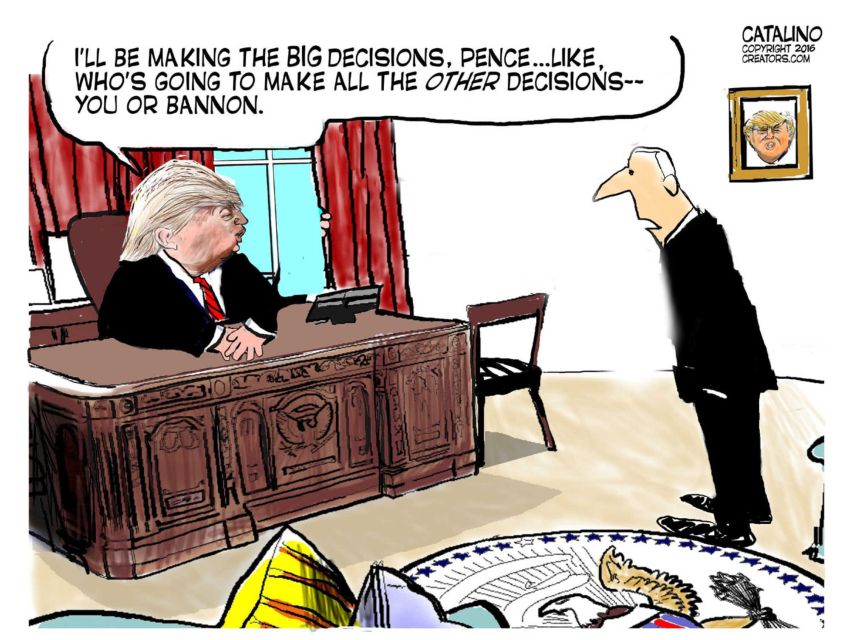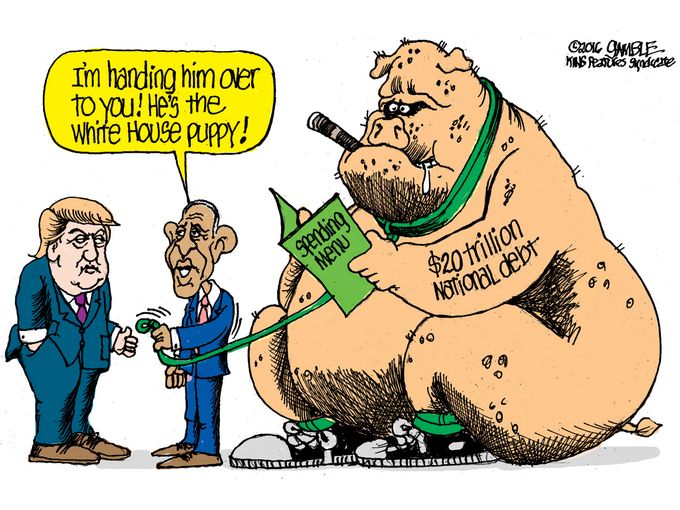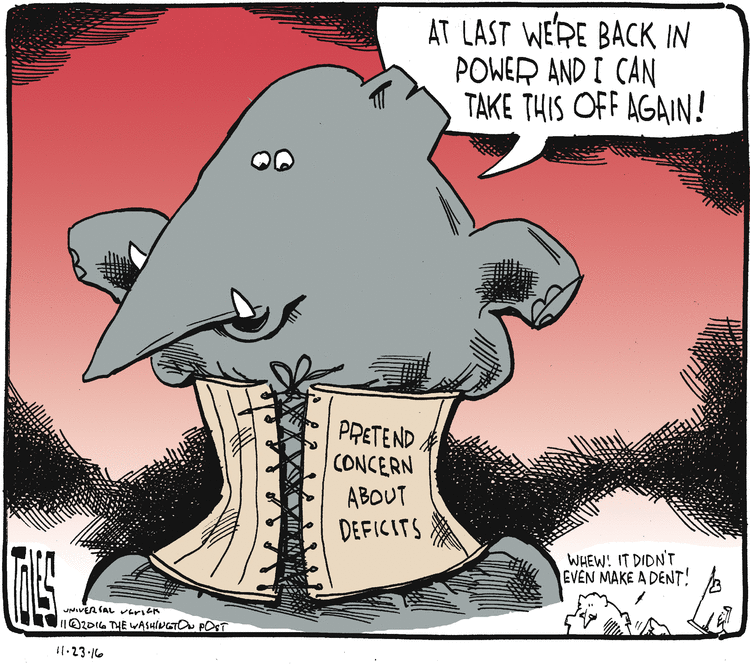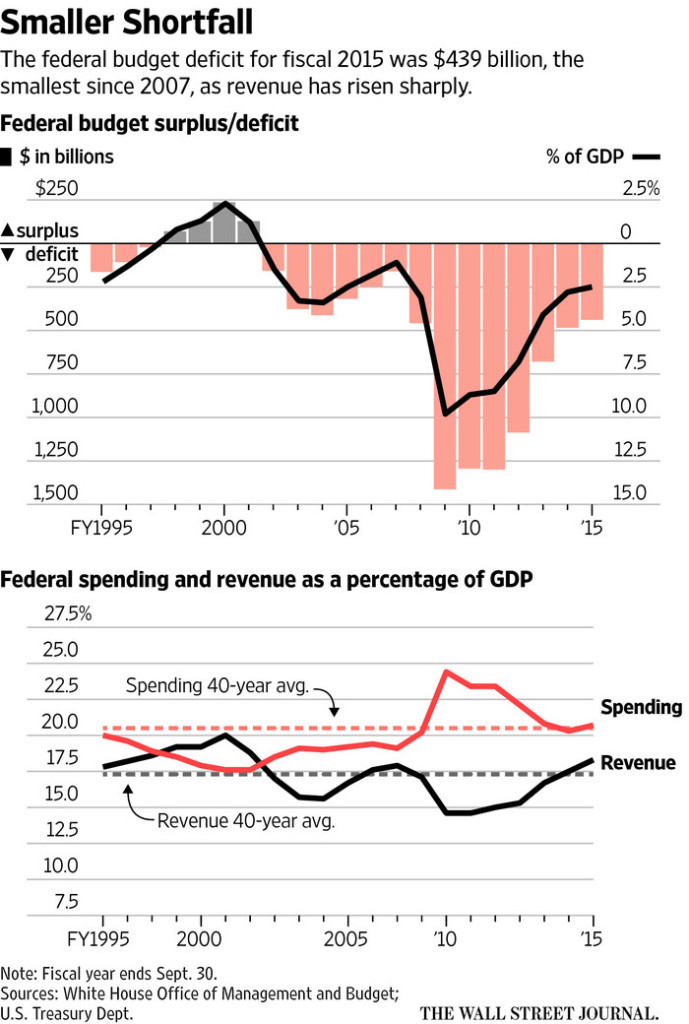The Daily Escape:

Dream Lake, Estes Park CO – January 2023 photo by Rick Berk Photography
(Wrongo and Ms. Right send healing thoughts to friend and blog reader Gloria R.)
We’re all aware that House Republicans are refusing to lift the debt ceiling unless Biden gives them well, something? And Republicans still haven’t decided what they want. The GOP also wants a balanced budget, but they can’t say what should go, or what should stay.
From the WaPo: (Brackets by Wrongo)
“They [GOP] say they want to reduce deficits — but meanwhile have ruled out virtually every path for doing so (cuts to defense, cuts to entitlements, wiping out nondefense discretionary spending, or raising taxes).”
The fact that Republicans are up in the air about what to do highlights the likely Democratic strategy is against their threats about the debt ceiling. Again, from the WaPo:
“Sensing Republicans are on the verge of a blunder in their schemes to use the debt ceiling to hold the economy hostage and try to extract draconian spending cuts, the White House has developed a two-part response strategy.
Part 1: Lay out the simple argument that Republicans are recklessly inviting an economic meltdown even by talking about a possible default.
Part 2: Force House Republicans to put forward a plan on the table and watch as they struggle with the fallout.”
The Democrats along with Senate Minority Leader McConnell (R-KY) are daring Republicans to put forward a plan. Senate Majority Leader Schumer (D-NY) said:
“If House Republicans are serious about taking the debt limit hostage in exchange for spending cuts, the new rules that they adopted require them to bring a proposal to the floor of the House and show the American people precisely what kind of cuts they want to make….”
Everyone who follows politics knows that Republicans never take much interest in fiscal sobriety when their Party is in control. They agreed to raise the debt limit three times while Trump was in power.
It seems that Republicans are doing the Democrats’ job for them. They are asking for an economic catastrophe and seeking draconian cuts that their base doesn’t want.
Consider the Republican desire to reduce our deficits. They have pledged to balance the budget (that is, to have a zero annual budget deficit) within 10 years. But they haven’t laid out any plausible mathematical path for getting there. And of the current debt ceiling, 90% of it was committed before Biden took his job.
Some Republican House members want to cut military spending, an idea that both Speaker Kevin McCarthy (R-CA) and Rep. Jim Jordan (R-OH) are on board with. But others, including House Appropriations Chair Kay Granger (R-TX), have said defense spending cuts aren’t on the table. Rep. Michael Waltz (R-FL) said:
“We’ve got to get spending under control, but we are not going to do it on the backs of our troops and our military,”
Waltz thinks Republicans should focus on “entitlements programs,” such as mandatory spending programs like Social Security, Medicare, and Medicaid. But the bi-partisan popularity of these programs makes them hard to cut.
And last Sunday, Rep. Nancy Mace (R-SC) was asked to name one thing she was willing to suggest as a spending cut. She instead stated things she wouldn’t put on the table:
“Well, obviously no cuts to Medicare or Medicaid or Social Security….That’s a nonstarter for either side.”
Wrongo has repeatedly suggested tax increases which would help lower deficits, but Republicans have ruled that out.
Instead they’ve changed the House rules so tax cuts will be much easier to pass, and tax increases harder to pass. The House’s rules package now says that any increase in taxes would require a three-fifths vote (60%) rather than a simple majority as previously.
They’ve also proposed doing away with income taxes, payroll taxes, estate taxes and even the IRS itself in favor of a supersized sales tax that would provide most revenue to the government. Republicans would substitute a 30% sales tax on all purchases and in exchange, do away with income, Social Security and Medicare taxes.
That means workers would keep the gross amount of their paychecks. But it also means that buying everything from groceries to automobiles would be hugely more expensive. It also provides a big tax cut for the wealthy and businesses.
The result is a smaller tax burden for the highest earners and a bigger one for people in the middle.
Once you reject trimming entitlements or defense spending and bake in the cost of the GOP’s proposed tax cuts, you’re left with an additional $20 trillion hole in the Federal budget over the next decade.
OTOH, the White House is expected to release its detailed budget in early March. It will build on budgets it has released previously. Republicans want Biden to negotiate on what to do about money we’ve already spent.
Try doing that with YOUR creditors.



